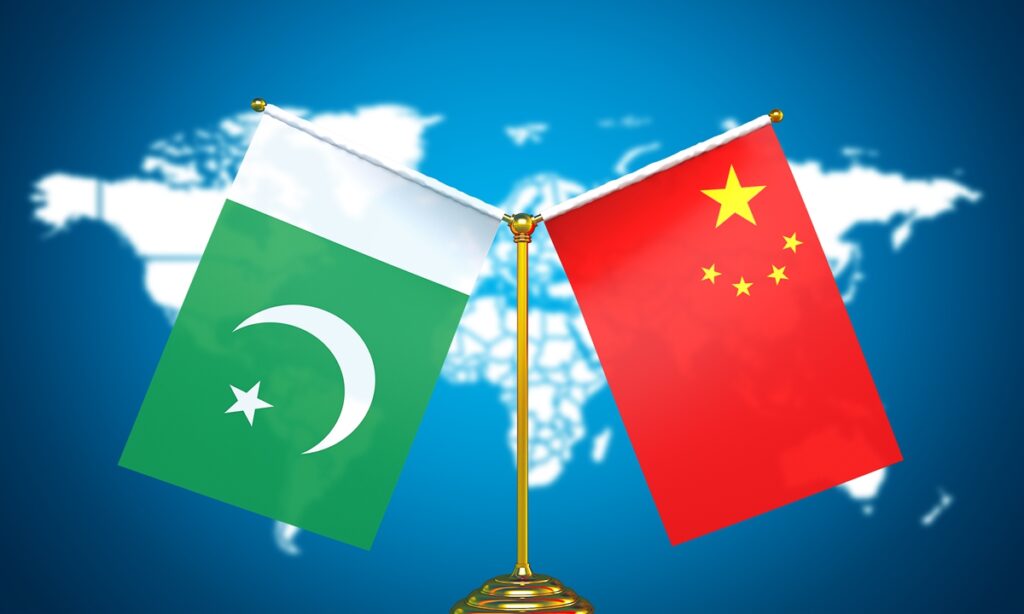
The long-standing and strategic partnership between Pakistan and China has been described as an anchor of regional stability and a beacon of hope for global peace and prosperity. This strong alliance, based on mutual respect, trust, and shared values, has flourished over the years, reflecting the profound friendship between the two nations. Pakistan’s Prime Minister Shehbaz Sharif recently underscored the importance of this partnership in a ceremony in Islamabad, where he unveiled sculptures of Pakistan’s founder Quaid-e-Azam Muhammad Ali Jinnah and Chinese leader Mao Zedong.
During the event, Prime Minister Shehbaz Sharif expressed his pride in the deep-rooted cooperation between Pakistan and China, highlighting key areas such as the China-Pakistan Economic Corridor (CPEC), defense production, education, and cultural exchanges. He emphasized how these collaborative efforts have not only strengthened bilateral ties but have also played a crucial role in shaping regional and global stability. The prime minister referred to the partnership as “an anchor of regional stability,” especially during these challenging global circumstances, and noted that it continues to pave the way for progress and prosperity.

Prime Minister Sharif also took the opportunity to honor the leadership and vision of Quaid-e-Azam Muhammad Ali Jinnah, whose sacrifices and foresight led to the creation of Pakistan. His remarkable leadership played a decisive role in establishing a sovereign nation. Sharif recognized that Jinnah’s vision of independence, justice, and equity laid the foundation for Pakistan’s future and remains a guiding principle for the country today.
The ceremony, held at the Prime Minister’s House in Islamabad, was a symbolic gesture to celebrate the enduring bond between the two nations. It was attended by key figures such as Mao Xiaoqing, the niece of Chairman Mao, and celebrated Chinese sculptor Yaun Xikum, who crafted the sculptures of Jinnah and Mao. The Prime Minister lauded Xikum’s skill in capturing the essence of both leaders, noting how the sculptures beautifully represent their lasting legacies.
Prime Minister Sharif also shared his reflections on his recent visit to China, during which he visited the Terra Cotta Museum in Xi’an, a testament to China’s rich cultural heritage. He drew a parallel between the historical significance of the Terra Cotta warriors and Pakistan’s ancient Indus Valley civilization, highlighting the deep historical connections that bind the two countries. This moment also served to reinforce the shared vision of independence and self-respect that both Jinnah and Mao stood for.
In line with this vision, the growing people-to-people exchanges between Pakistan and China have become an essential part of the bilateral relationship. The number of Pakistani students attending Chinese universities has been steadily increasing, and the first batch of agricultural graduates from Pakistan is set to visit China next month to acquire modern farming techniques. These exchanges will contribute to enhancing Pakistan’s agricultural productivity, a crucial aspect of the country’s economic development.

The event also marked the 148th anniversary of Quaid-e-Azam Muhammad Ali Jinnah’s birth on December 25, as well as the 131st anniversary of Chairman Mao’s birth. The unveiling of the sculptures, timed with these significant anniversaries, is a tribute to the vision and leadership of both figures, who not only shaped their respective countries but also fostered a shared understanding of independence and justice.
Chinese sculptor Yaun Xikum explained that he was deeply inspired by the greatness of both leaders when creating the sculptures. He emphasized how Jinnah’s and Mao’s vision of independence and sovereignty greatly influenced the world. His artistic tribute stands as a testament to the enduring friendship between Pakistan and China and the shared ideals that continue to guide both nations.
The strengthening of the Pakistan-China relationship is not just limited to cultural exchanges but is also evident in the growing trade and economic ties between the two countries. With the ongoing development of CPEC, Pakistan has witnessed significant infrastructure improvements, which have further solidified the economic partnership between the two nations. This corridor is seen as a game-changer for the region, opening up new opportunities for trade, investment, and regional cooperation.
In conclusion, the strategic partnership between Pakistan and China is not only a symbol of regional stability but also a powerful force driving global peace and prosperity. As both nations continue to deepen their ties, the enduring legacies of their leaders, Quaid-e-Azam Muhammad Ali Jinnah and Chairman Mao Zedong, remain central to the shared vision of a prosperous future. With growing people-to-people exchanges, strong economic cooperation, and a mutual commitment to peace, the Pakistan-China partnership continues to evolve as one of the most significant alliances in the world today.


